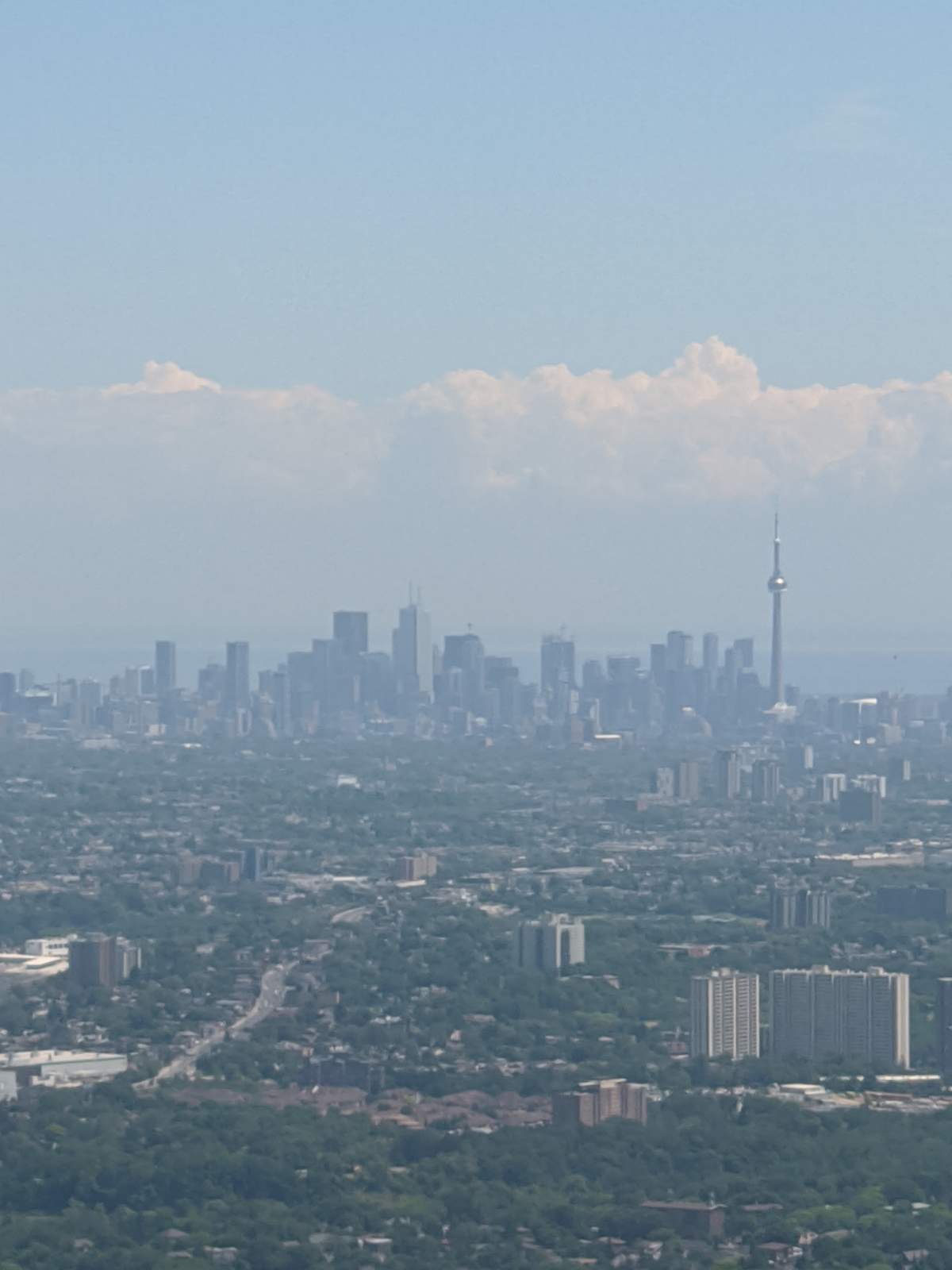The rules around air travel are changing.

Flyers have more to think about than just the size of the bottles of liquids in their carry-on. Temperature, cough, and overall wellness have been added to pre-flight screening procedures.
“The passenger has more responsibility. He’ll have to be fit for travel and in the past that wasn’t the case but that is going to help us reduce the risk,” said Peter Cerda, Regional Vice President, The Americas, International Air Transportation Association (IATA).
COVID-19, the disease caused by the novel coronavirus, has infected more than nine million people around the world based on statistics published on the John Hopkins University of Medicine COVID-19 Case Tracker map.
Despite the continued spread of the virus, the aviation industry is pushing to restart, especially given all of the other sectors that have opened.
“We are at a period of time where we need to learn how to co-exist with the virus,” said Cerda, speaking to Global News from Miami, where he is based. “We are confident we can transport passengers safely, efficiently, and ensure we are not a vector of the virus.”
IATA, which represents roughly 290 airlines, says if economies are to bounce back aviation must restart. However, it may not be an easy sell, the industry association’s own polling of flyers in 11 counties shows people are hesitant.
When it comes to the question of returning to travel the majority of those polled — 55 per cent — say they’ll wait at least six months before travelling.

“I had a lot of anxiety around that because I was like, ‘am I making the right choice travelling?'” said Rani Suleman. The full-time doctoral student in London, England flew home to Canada on June 19 with Air Canada.

Get breaking National news
“It wasn’t busy, not full by any means and all of the middle seats were blocked off,” said Suleman.
She praised the flight attendants, who she says, wore masks and visors during the flight and travellers were given individual packages containing a mask, wipes and sanitizer. Still, she called her flight from Heathrow to Pearson an “experience.”
“My personal opinion is if you don’t need to travel, then don’t travel.”
Airlines and airports are taking measures to reduce transmission of the virus but there are no guarantees. In many countries, those who do travel must go into isolation. The Prime Minister of the United Kingdom, Boris Johnson, and his government is facing pressure for its quarantine policy from heads of airlines and industry associations, including IATA which issued a formal statement opposing the policy on June 24.
“Imposing quarantine measures on arriving travellers keeps countries in isolation and the travel and tourism sector in lockdown. Fortunately, there are policy alternatives that can reduce the risk of importing COVID-19 infections while still allowing for the resumption of travel and tourism that are vital to jumpstarting national economies. We are proposing a framework with layers of protection to keep sick people from travelling and to mitigate the risk of transmission should a traveller discover they were infected after arrival,” said Alexandre de Juniac, IATA’s Director General and CEO.
The framework mentioned includes travellers putting the onus on themselves to not fly if they feel ill combined with screening efforts in airports including temperature checks.
IATA acknowledges that taking a person’s temperature is not the most effective way to screen for the virus because not everyone infected shows symptoms and while fever is a common sign it does not prove someone has COVID-19. Additionally, there is support for countries to test travellers.
COVID-19 is spread through droplets that are shed when an infected person breathes, speaks, coughs or sneezes. When a person touches an infected surface and then touches their mouth, nose or eye, they are at risk of contracting the illness caused by the virus. Handwashing with soap and warm water for 20 seconds or use of a high-alcohol hand sanitizer is recommended to reduce the risk of infection and masks are recommended to prevent droplets from being expelled.
“We have to slowly start reopening air travel. It’s not only about people but about helping to generate economic prosperity again and getting the economic engines going in each country,” said Cerda.

Since January, air travel has bottomed out, dropping by 70 per cent.
















Comments